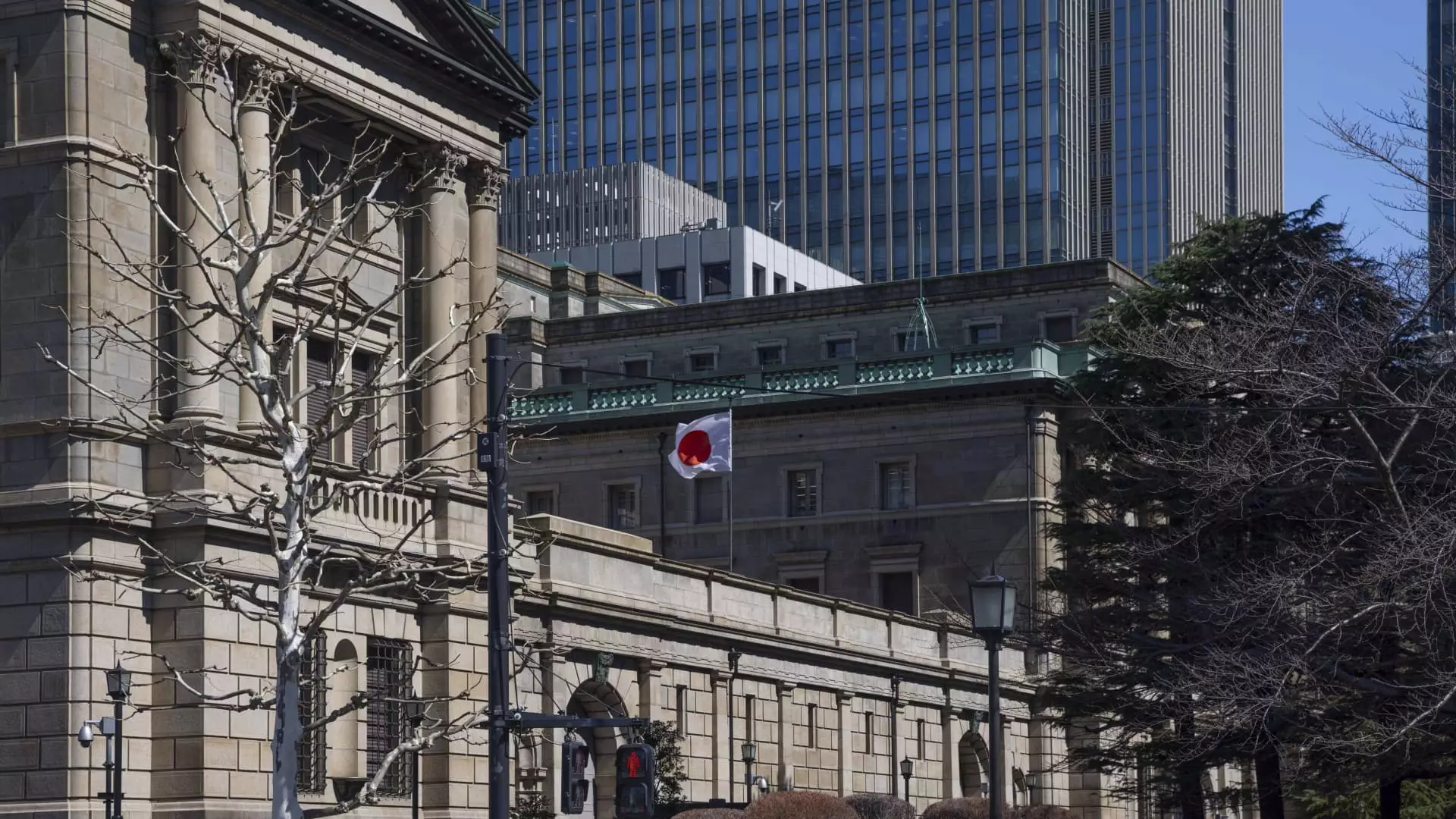Japan is currently at a crossroads, facing a significant crisis that could redefine its economic landscape for years to come. The yen, a cornerstone of the nation’s financial stability, is weaker than it has been in decades. This depreciation doesn’t merely represent a slump; it evolves into a veritable crisis for households who are grappling with rising living costs. As the policy chief of the ruling Liberal Democratic Party, Itsunori Onodera, astutely pointed out, the weakness of the yen is a critical factor contributing to inflation—a reality that demands urgent attention. Households across the nation are suffering from the repercussions of this weakened currency, with essential goods becoming increasingly unaffordable. The economic policies surrounding the yen need to evolve, not just in response to this crisis but as a proactive solution.
Japan’s Economic Strategy: A Misguided Path
One cannot help but criticize the traditional approach Japan has taken towards currency valuation and economic competitiveness. The idea that a weak yen could boost exports sounds good on paper, but the reality is far more complex. It turns out that the supposed benefits are outweighed by the burdens placed on everyday citizens. Onodera’s call for bolstering industrial competitiveness as a means to strengthen the yen is commendable but woefully inadequate. This stance feels reactive rather than proactive—it appears to address a symptom rather than the root cause of Japan’s economic malaise.
Moreover, the suggestion to avoid using U.S. Treasury holdings as a bargaining chip in trade negotiations is ostensibly sensible. However, it reflects a lack of assertiveness in negotiations with the United States. Shouldn’t Japan leverage its financial strength, particularly its vast Treasury holdings, to ensure that its interests are adequately defended on the global stage? In an era where economic diplomacy is frequently characterized by hardball tactics, adopting a passive position only serves to undermine Japan’s bargaining power.
Interest Rate Policy: The Crux of the Issue
Adding another layer of complexity to the situation is the Bank of Japan’s sluggish approach to interest rate normalization. The ultra-low interest rates that have plagued Japan for years are in stark contrast to the Federal Reserve’s more aggressive rate hikes. This disparity exacerbates the yen’s depreciation, as foreign investors flock to regions where their investments yield better returns. Why is Japan steadfastly holding onto this outdated monetary policy? It’s increasingly apparent that the Bank of Japan must pivot towards a more dynamic monetary strategy—one that is attuned to current market realities.
Analysts have raised concerns that the Bank of Japan’s reluctance to adjust its interest rates could invite reprimands from U.S. officials during trade talks. The truth is, it’s not merely about appeasing international partners; it’s about securing the economic future of Japan and its citizens. A failure to adapt could send the yen tumbling further, intensifying the inflationary pressures that Onodera openly acknowledges.
The Consequences of Inaction
In the world of finance, silence can often speak louder than words. As Japan’s economic negotiators prepare to engage with U.S. Treasury Secretary Scott Bessent, there is an unsettling sense of trepidation. The challenge ahead is not just sustaining a dialogue; it’s about establishing a robust and forward-thinking strategy that addresses the myriad of economic pressures.
The volatility seen in global markets in recent weeks serves as a stark reminder that the stakes have never been higher. Japan’s precarious economic environment demands a multi-faceted approach: enhancing industrial competitiveness, revisiting monetary policies, and actively engaging in trade negotiations with a focus on protecting national interests.
As we watch these events unfold, one must wonder: will Japan seize this moment for transformative change or will it continue to drift in a sea of economic uncertainty? The time for decisive action is now; the stakes are simply too high for complacency. Japan stands at a critical juncture that warrants not just hope but audacious ambition—a chance to not only stabilize the yen but to emerge stronger in this era of unprecedented challenges.


Leave a Reply